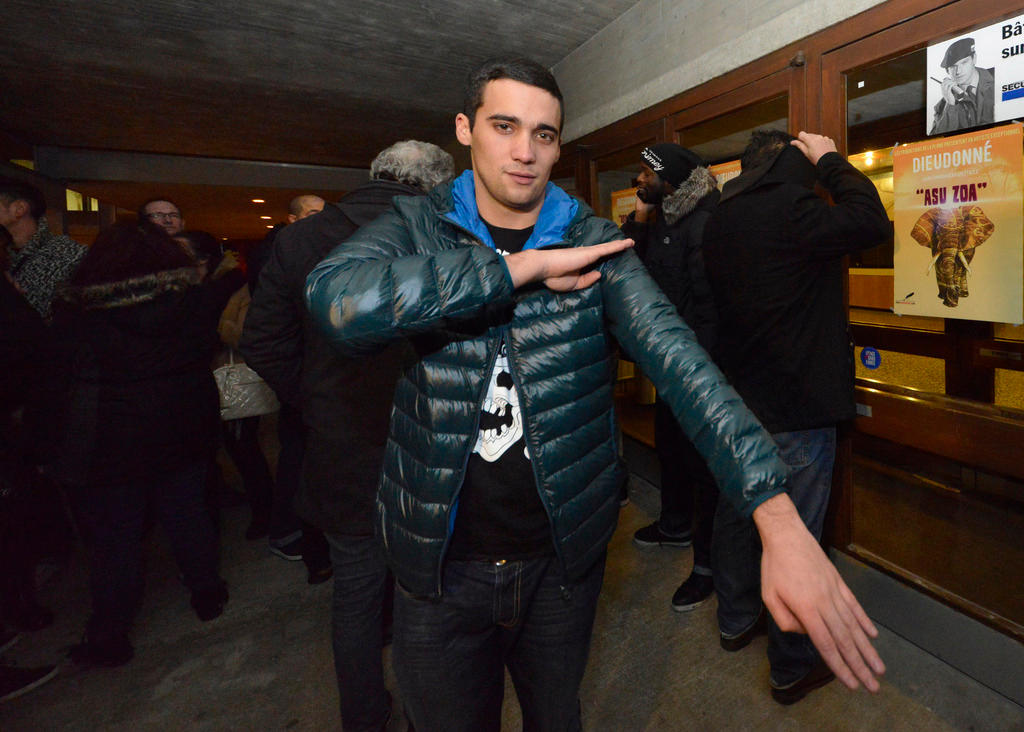
Swiss court judges ‘quenelle’ gesture to be racist

The Swiss Federal Supreme Court has deemed the “quenelle” gesture popularised by French comedian Dieudonné M'bala M'bala to signify racist behaviour.
A young man who was photographed using it in front of a Geneva synagogue, along with two companions, was pronounced guilty of racial discrimination by the country’s highest court.
A photograph of three young men, including one in military uniform, performing the “quenelle” salute in front of a synagogue in Geneva was published in the 20 Minutes paper in 2013. Geneva’s public prosecutor filed criminal charges against them in 2015, resulting in a suspended sentence and a fine that two of the trio accepted.
The one who contested the charges ended up later being sentenced for racial discrimination by the Geneva court of justice. He appealed the verdict and the case was brought before Switzerland’s highest court which upheld the judgement on Wednesday.
Bad intentions
Under Swiss anti-racism law, only racist acts committed in public are criminal offences. A ruling on Hitler salutes in 2014 put a finer interpretation on the law, stating that the gesture is a crime only if someone is using it to try to spread racist ideology to others.
In this case, the court dismissed the appellant’s argument that the quenelle gesture signified nothing more than “schoolboy humour”. The fact that its anti-Semitic connotations are well known among the Geneva public and that it was performed in public in front of a synagogue meant that it was a hostile act directed at Jewish people, stated the court.
The court also found that the fact that the three young men partially covered their faces was proof of their attitude and intentions.
In 2009 the Swiss Federal Court struck down the city of Geneva’s refusal to rent a stage to the French comedian Dieudonné, because freedom of expression was considered more important. A subsequent show in Nyon in 2014 was allowed despite bans by the local French authorities in Nantes, Marseille, Bordeaux and Tours the same year.

In compliance with the JTI standards
More: SWI swissinfo.ch certified by the Journalism Trust Initiative




























You can find an overview of ongoing debates with our journalists here . Please join us!
If you want to start a conversation about a topic raised in this article or want to report factual errors, email us at english@swissinfo.ch.